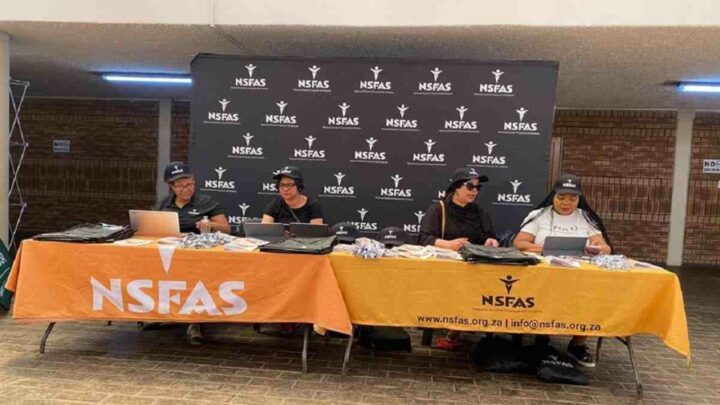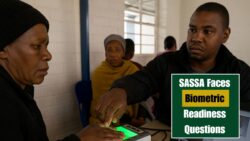The National Student Financial Aid Scheme (NSFAS) has sparked outrage among university students after several accounts were suddenly blocked due to what officials described as “fraud suspicion.” Many students have been left stranded, unable to access their funds for accommodation, meals, and study materials. The NSFAS account suspension has caused confusion on campuses across South Africa, with students demanding clear answers. While NSFAS says it is investigating potential irregularities, affected students argue they were not given prior notice before being locked out of their funding accounts.
Why NSFAS Blocked Student Accounts Over Fraud Suspicion
According to the NSFAS management team, some student accounts showed unusual activity, prompting an internal probe into possible fraudulent transactions. These activities allegedly involve duplicate payments, false academic records, or money being redirected to non-beneficiaries. To protect public funds, NSFAS decided to temporarily freeze several student funding accounts until verification is complete. While the intention is to safeguard taxpayer money, the move has caused frustration among thousands of legitimate students who depend on these allowances for survival. NSFAS insists that only verified students will regain access once checks are finalized.
Impact on University Students Across South Africa
The sudden NSFAS account blocks have hit universities nationwide, from the University of Cape Town to Tshwane University of Technology. Students reported being unable to buy food or pay rent, leading to protests and urgent meetings with campus authorities. Some student leaders have called the action “unfair and inconsiderate,” demanding the NSFAS board to fast-track investigations. The Department of Higher Education is now under pressure to intervene and ensure student allowance payments resume without delay. Many fear the disruption could impact their academic progress and mental well-being.
What NSFAS Says and What Students Should Do
In an official statement, NSFAS authorities urged affected students to remain calm and cooperate during the verification process. They emphasized that the freeze is temporary and aimed at restoring integrity to the system. Students are encouraged to update their details via the official NSFAS portal and report any unauthorized account activity. Meanwhile, NSFAS is working with financial service providers to identify and reverse any fraudulent payments. The agency assured that legitimate students would regain access to their funding benefits soon, once all checks are complete.

List of Universities Affected and Current Status
Reports indicate that several institutions have been affected, with varying levels of disruption. While some campuses have already resolved a portion of the NSFAS payment issues, others are still facing delays. Student representative councils are monitoring the situation closely to ensure transparency and accountability throughout the investigation period.
| University Name | Accounts Blocked | Expected Resolution Date | Support Contact |
|---|---|---|---|
| University of Cape Town (UCT) | 450+ | By 20 October 2025 | [email protected] |
| University of Johannesburg (UJ) | 300+ | By 18 October 2025 | [email protected] |
| Tshwane University of Technology (TUT) | 600+ | By 25 October 2025 | [email protected] |
| Durban University of Technology (DUT) | 200+ | By 22 October 2025 | [email protected] |
| Nelson Mandela University (NMU) | 150+ | By 19 October 2025 | [email protected] |
FAQ 1: Why did NSFAS block accounts?
NSFAS blocked accounts after detecting suspicious or duplicate transactions during its internal review.
FAQ 2: How long will the investigation take?
The verification process may take up to two weeks, depending on the complexity of each case.
FAQ 3: Can students appeal the block?
Yes, students can submit appeals with proof of identity and enrollment through the NSFAS online portal.
FAQ 4: Will affected students lose their funding?
No, verified students will retain their funding once the verification process is completed.





